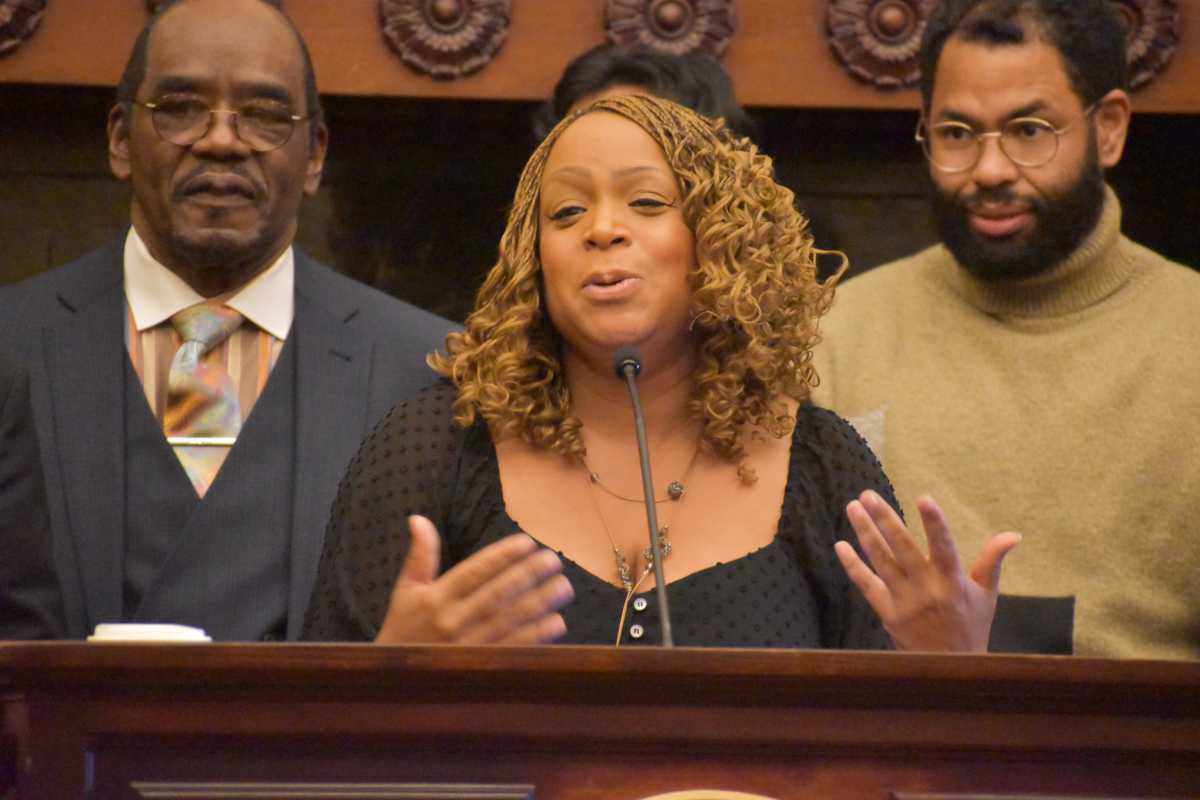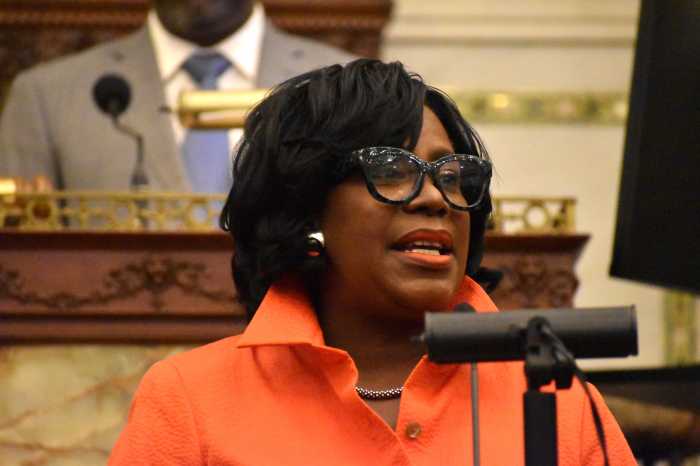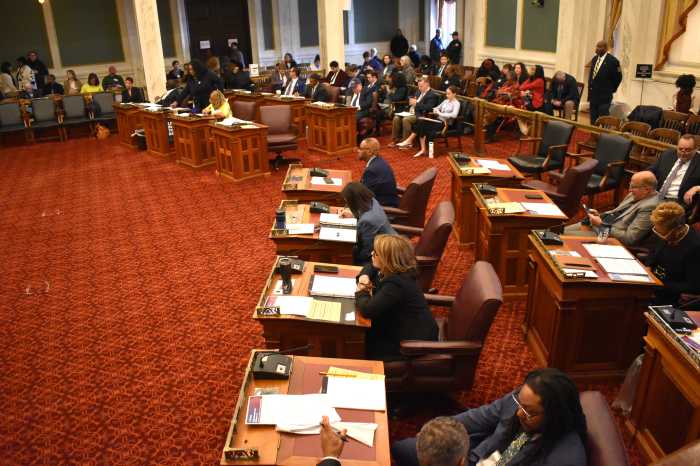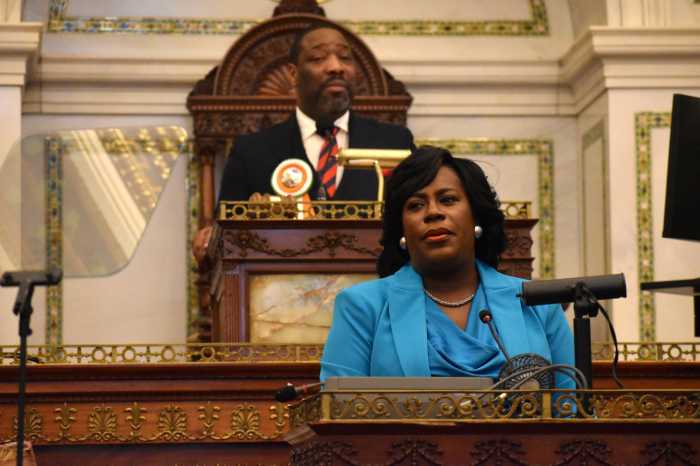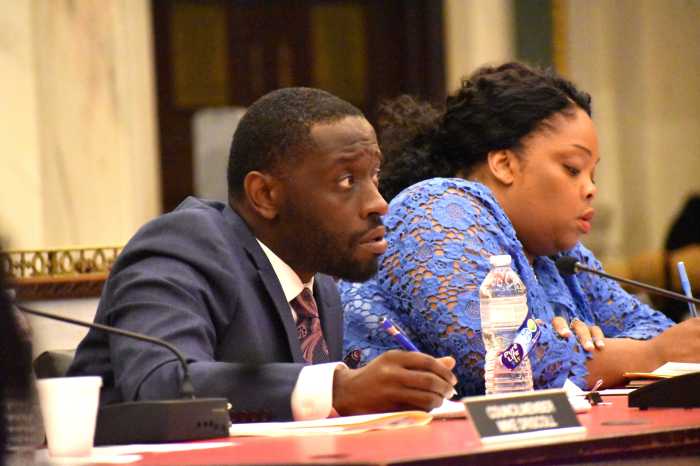City Councilmember Jamie Gauthier got most of what she wanted in the municipal budget agreement Mayor Cherelle Parker and lawmakers struck Thursday.
The deal incorporated low-income property tax freeze legislation that she introduced, along with $14 million for the construction of 70 affordable units at the University City Townhomes site.
Funding for the rental assistance portion of the Eviction Diversion Program was set at $34 million, $19 million more than what was included in Parker’s original proposal. Gauthier and other progressive members had been pushing for $50 million.
Gauthier sat down with Metro last week — a few days before the budget was finalized — to discuss her approach to housing, affordability and displacement. She believes the city can be a place where residents have access to high-quality, affordable housing and developers can still make money.
“I wouldn’t be here if I didn’t actually think that we could achieve equitable development as a city,” Gauthier said. “It might take a little longer. It might require more thought. It might require more effort, but it’s worth it because we’re talking about people and their ability to live in Philadelphia.”
She represents the 3rd District, which covers parts of West and Southwest Philadelphia.
The following conversation was edited for brevity and clarity.
You are chair of Council’s Committee on Housing, Neighborhood Development and the Homeless and made housing affordability a key part of this legislative term. Why did you think this is a good time to focus on it? Why is it such an important issue right now?
I’ve been focused on this my entire tenure in Council. This is why I ran. I ran in 2019 specifically to stop displacement in the 3rd District in particular, where I was running, but also across the city, and to create more affordable housing in the city.
My background is in urban planning, so this is an issue that I have worked on for a very long time in the nonprofit sector. I felt like I would be able to have more of an impact as a Council person, as a district Council person in particular, because district Council people have such an influence on land use and development.
I’ve just always had a belief, even prior to getting into Council, that having access to safe, affordable housing is crucial for people to build a good quality of life and to succeed in life. And then furthermore, I have always strongly pushed back against the notion that affordable housing is something that’s like over here, in the places that nobody wants to live, and not in neighborhoods of opportunity or high-amenity neighborhoods.
Housing has been an issue throughout the city, but there’s different aspects of it in different places. Can you tell me a little bit about what you’re seeing in the 3rd district?
I’m from Kingsesssing in Southwest Philadelphia. Even in the neighborhood that I’m from, we’ve seen housing prices rise dramatically over the last few decades. I do think that this issue is more acute in areas that are gentrifying. In the 3rd District, we have a lot of resources and wealth concentrated in the meds and eds, and that makes it an attractive place to live.
One of the things that I did when I first came into office was to commission a study on the state of affordable housing in the third district. We found that West Philadelphia’s Black population east of 52nd Street had been cut in half over the last several decades.
There are people in my district who are dealing with severe levels of poverty, and they’re not able to afford the dramatic increases in housing. Displacement is real. It’s not an imaginary thing. It’s not just something that progressives made up. It’s a real thing that’s happening in neighborhoods across the city.
You’re the only Council member with a planning degree. How does that impact how you approach this issue?
I think it has driven my intense focus on housing, as the core of family stability, and as something people need in order to build wealth and create a better life for themselves. But I also think it makes me think about place a lot, right?
Because I think places are also central to people’s well being. Everybody wants to live in a neighborhood that not only has safe, accessible, affordable housing, but people want to live near parks. People want to live near recreation centers. People want to live in places where there’s transit access for them to get to the places they need to get to. People want to live where there is access to jobs and quality schools. Being in places that are abundant in that way helps people to further a lot of their individual goals and also be connected to community.
It is crucial that government look at the places that we are creating and how we are investing in places because we can tie a straight line to that investment or that disinvestment in how people are doing in communities in Philadelphia today.
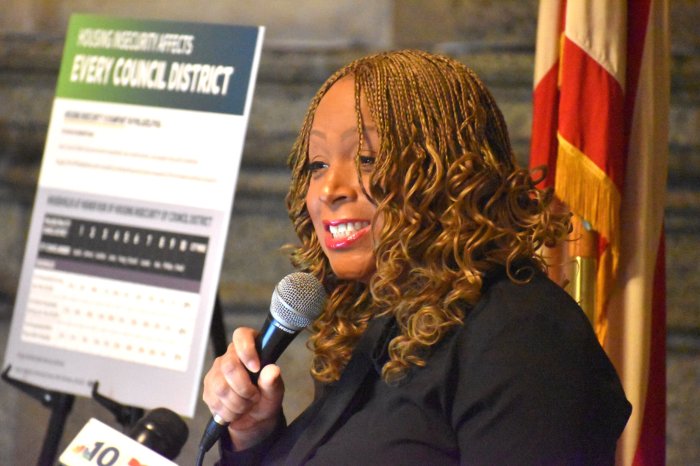
How do you approach trying to help both renters and homeowners?
I will say a lot of my work has focused on protections for renters, because renters are particularly vulnerable in a housing crisis and in the type of housing market that we’re in. But I also realize that we have to focus our efforts and attention on homeowners, particularly those who are low-income. And those who want to get access to homeownership as a means of climbing the economic ladder and creating wealth for their families. Those are very important things.
With the last property tax reassessments that happened two years ago, we saw people’s taxes increase dramatically. In my district, people’s assessments went up on average by 50%. But we’ve also talked to homeowners who saw increases 100% or 200%, or 300%.
With these type of property tax assessment increases, we’ve almost created this situation where people are at risk of displacement because of the City of Philadelphia. And I don’t think that’s where we want to be.
We haven’t seen the reassessment numbers yet, but how concerned are you about a repeat of what we saw in 2022?
Highly, because although [a recent Reinvestment Fund report] acknowledges that, to some degree, the city’s assessments get more accurate the more we do assessments, it’s not enough. It still shows that there are significant flaws in our system that results in assessments to Black and brown homeowners that are unfair, and that they cannot afford. We have to get an acknowledgement of this bias that exists and acknowledgement of the fact that we have a lot of work to do to make this system more fair and less regressive and punitive to the Black and Brown homeowners that we say we are trying to help. We have to get some protection in place right now.
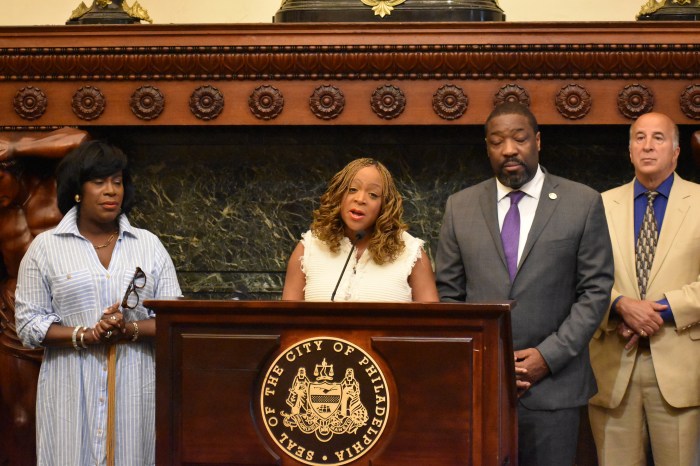
You do hear the line of thinking sometimes in pro-development circles that city government should stop legislating, stop doing zoning overlays, just step aside and let these developers build as many units as possible. And the market will take care of the affordability issue by an increase in supply. What do you make of that argument?
I’ve not seen them prove their argument. Since the beginning of time, development has gone their way, essentially. We’ve had a huge boom, particularly since the 10-year tax abatement. I’ve not seen that proven out. If developers ability to build was going to solve the housing crisis, we would have seen that already in West Philadelphia.
What we’ve seen is the continued rising housing prices. What we’ve seen is real displacement, particularly among Black people who stewarded these neighborhoods. I would need more proof of that argument. I’m not saying that supply doesn’t matter, but I think you have to have an environment where increasing the supply, but where we are also demanding equity and affordability.
I absolutely think that we need affordability requirements, as with the mandatory inclusionary zoning policy that we passed. Because developers otherwise do not build at prices that community members can actually afford, and that’s something that we have seen proven out again and again and again.
You mentioned that you wanted to be a district Council person because there’s so much control over land use. There’s been some criticism of that practice — councilmatic prerogative. What’s your position on that?
We see ourselves as using prerogative for good. We see ourselves as using prerogative to really, really, really bear down on this issue of equitable development. As an example, probably the biggest example, if prerogative didn’t exist, I would have been able to do nothing about the [University City] Townhomes. Nothing. The only reason why I was able to put that overlay in place was because of councilmanic prerogative. And that’s why we won. That’s why we won almost $4 million in a settlement for those families. That’s why the city won that 20% [of the property].
Some of the criticisms that people have about prerogative, I also agree with. I agree that there should be much more transparency around land dispositions. I’ve done legislation to create that, and to level the playing field for smaller players trying to get access to city owned land to do beneficial things for the community. So I understand people’s criticisms of prerogative.
But in this housing market, I also have worked really hard to use prerogative to fight for people in the area of housing justice. And until we get more across the board policies around equity, I and other Council members are going to lean on prerogatives to protect our folks.
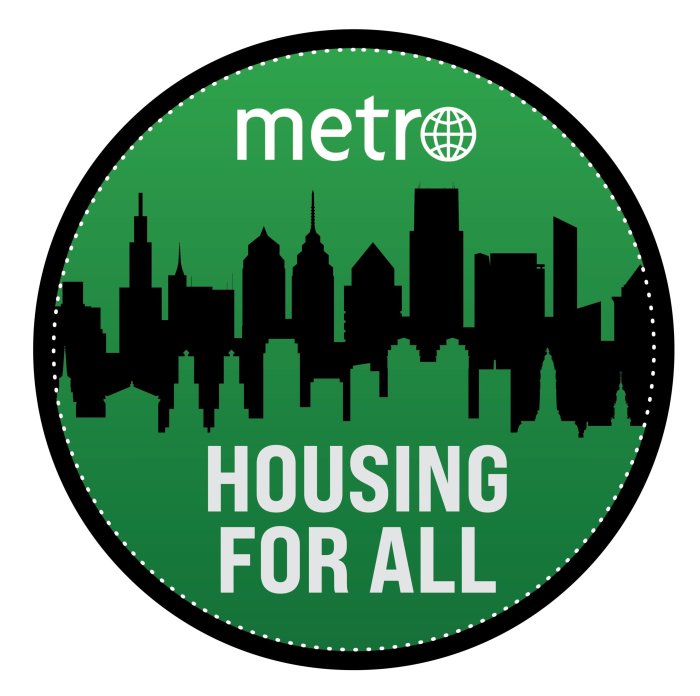
‘Housing For All’ is a two-year project in which Metro Philadelphia will investigate the city’s affordable housing crisis. It is made possible by The Lenfest Institute for Journalism’s Philadelphia Local News Sustainability Initiative grant.



